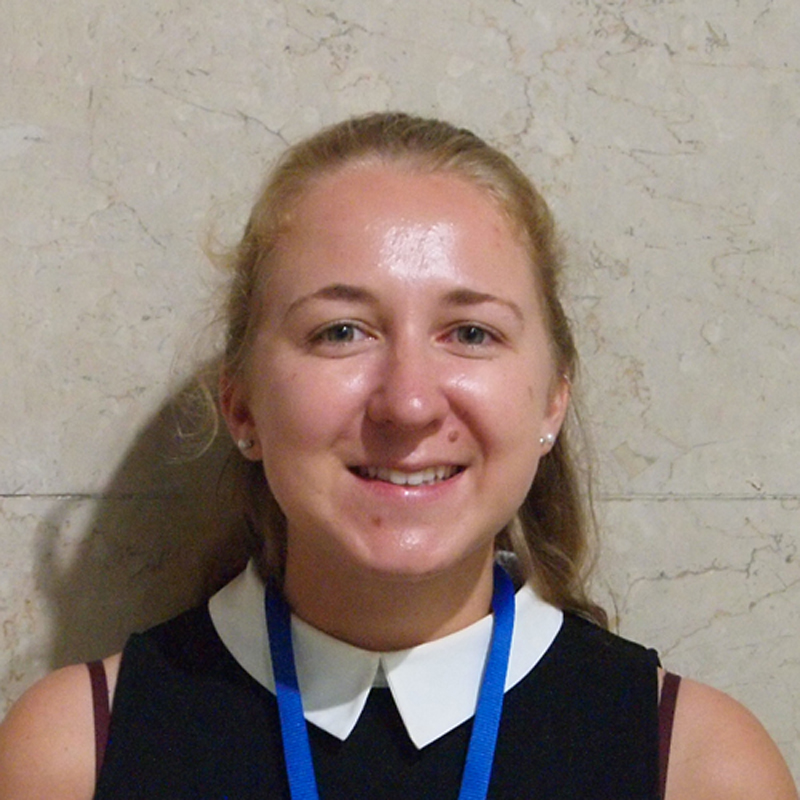Faculty Notes
Seven Ph.D. Students, Postdoctoral Fellows Earn Biological Sciences Departmental Awards
Carnegie Mellon University’s Department of Biological Sciences has selected five graduate students and two postdoctoral fellows to receive awards funded through endowments from Margaret Carver and Semon Stupakoff. Four $5,000 awards provide funding for research enrichment and diversity, equity and inclusion initiatives, and three $1,000 awards are presented to candidates who have published outstanding papers in the last year.
Ph.D. student Suzi Kim and postdoctoral researcher Corine Jackman each received a Margaret Carver Research Enrichment Award for their contributions.

Suzi Kim
Kim, a member of the Cai Lab, investigates how T cells’ receptors guide their decision making. She plans to use the award to access specialized microscopy tools including lattice light sheet microscopy, direct stochastic optical reconstruction microscopy and expansion microscopy to better visualize how the receptors are organized on T cells.

Corine Jackman
Jackman is a member of the Hiller Lab, where she investigates cell signaling in clonal pneumococcus populations. She plans to use the grant to cultivate pneumococcal clonal lines, allowing her to better investigate differences between cells from the same line and how environmental cues affect the cells. She also plans to design new methods of confocal imaging, allowing her to investigate differences in signaling for strains of pneumococcus.

Sarah Oladejo
Sarah Oladejo, a member of the McManus Lab, received a Margaret Carver Award for Enhancing Diversity, Equity and Inclusion. Oladejo plans to use the award to create outreach programs, targeted at girls of color in Pittsburgh high schools or refugee camps. She said she hopes that by showing them bioinformatics sessions and offering them hands-on activities, she can encourage them to consider a future career in STEM.

Mo Zhu
Mo Zhu, a member of the Barth Group, received a Stupakoff Research Enrichment Award. Zhu studies how the brain drives behavior and how behavior changes the brain. She uses the longitudinal in vivo Ca imaging technique to track the activity of the same group of cells during learning. In order to capture more detailed neural activity in mice, she will use the award to purchase a resonant scanner for the microscope system and cannulas.

Christina Akirtava
Christina Akirtava received a Stupakoff Outstanding Research Paper Award. Akirtava is a member of the McManus Lab. The paper she first co-authored with Gemma E. May, “False-positive IRESes from Hoxa9 and other genes resulting from errors in mammalian 5′ UTR annotations,” shows that putative IRESes from Hoxa9 and other mammalian genes generally encode transcriptional promoters and splice sites. Such features can be used to predict their activity in bicistronic reporters. The paper has generated awareness for public data, demonstrated the importance of data reproducibility and shown the need for proper experimental controls.
Ph.D. student Brendan Gallagher and postdoctoral fellow Aleksandra Klimas each received a Stupakoff Outstanding Research Paper Award for their work as first co-authors on the paper “Magnify is a universal molecular anchoring strategy for expansion microscopy” published Jan. 2 in the journal Nature Biotechnology. Both members of the Zhao Lab, they created an accessible way to image specimens in high resolution, and the method is broadly applicable to many types of sample preparations.
■ Kirsten Heuring and Heidi Opdyke

Brendan Gallagher
